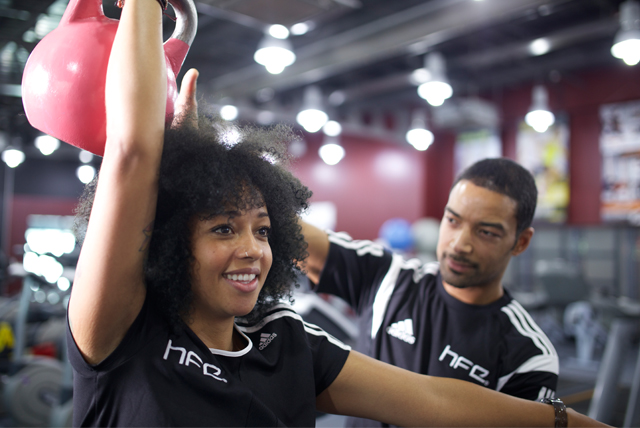If you were to talk to any regular gym goer about what a personal trainer does, they would be able to consistently answer you. On gym floors, in health clubs, parks, leisure centres, schools, retreats, cruise ships and many, many more places, personal trainers are there on the ground, day in day out, helping everyday clients do things they never thought possible. Perhaps the goal is to lose weight before a wedding or beach holiday, strive for a personal best, or just improve overall health and fitness. Whatever the target personal trainers are masters in achieving results. Being able to achieve these results effectively and consistently is critical for several reasons. Firstly, gyms, health clubs and leisure centres have moved away from the traditional fitness instructor model, traditional inductions are becoming a thing of the past and more and more clients have specific needs and outcomes they'd like to achieve. Secondly, sedentary behaviour and obesity have reached epidemic levels and exercise really is the only effective solution. Today's personal trainers need to be fully equipped to deal with a whole spectrum of clients, states of health, and ability levels.
Qualities
The importance of personal trainers has been well and truly established, but what does it actually take to become a leader in your field? A cornerstone of the fitness industry? If you've talked to a personal trainer, it's clear that they live and breathe health and fitness. In essence they are a walking advert for their services and to achieve that involves consistently eating right, constantly educating yourself, and always staying in shape. A great deal of self-motivation and commitment is required, especially in the face of early starts and late finishes. With regards to skills, the very best PTs are great communicators, highly organised, committed, adaptable and energetic.
To get a real flavour for the personal qualities you need to succeed as a personal trainer, here's what the experts had to say. In a recent interview with HFE, world-leading personal trainer Matt Roberts, who's trained leading politicians, international film starts, musicians and professional athletes says, "It takes a lot of diligence, real passion and skill. Those things don’t just come to you on a plate and even when you’ve got them, they can just as easily be lost. Being true to your core beliefs and understanding who you are as a trainer are key."
David Kingsbury, a leading film industry personal trainer whose clients have included Hugh Jackman, Michael Fassbender, Jennifer Lawrence and Jake Gyllenhaal, says, "You want to make sure you’ve got a good base level of knowledge that’s constantly expanding. As you’re training people, you’re always going to be presented with new and unique challenges and if you can overcome those with the knowledge you’ve gained, it puts you in a really strong position... I would also say that you absolutely have to put your clients’ results first. With every single person you’re looking after, you want to make sure you’re doing everything you can to help them achieve their results."
Finally, James Crossley, who rose to fame as Hunter on the hit TV show Gladiators and now plies his trade as an elite personal trainer, has this to say, "I think fitness professionals should focus on specialising in a few fields and becoming an expert... It’s really important to stay solid on that because you’ll build up bigger respect if you’re really good at what you do rather than being a jack of all trades. Once you start building up a client base and word of mouth spreads that you’re very good at what you do, that’s an easier way to run a business rather than trying to grab anyone you can to train."
Qualifications
If you have the personal qualities to become a PT and the burning desire to help others, the next logical step is to gain a qualification. If you've never worked in the fitness industry before, your first port of call would be the Level 2 Gym Instructor course and this is the industry's most popular entry-level qualification. It also acts as a prerequisite for the industry's most sought-after course, the Level 3 Certificate in Personal Training. Upon achieving this qualification, a fitness professional is granted personal trainer status.
From here, the floor is open. The best personal trainers don't rest on their laurels and are constantly looking for avenues to improve and expand their skill set. One such way is naturally to look for further qualifications. At Level 3, courses are available that will teach you how to adapt and deliver exercise for various special populations groups, such as pre and postnatal women, older adults, and disabled clients. There's also the Level 3 Exercise Referral, sometimes called GP Referral, and this would enable a trainer to get involved the ever-growing number of GP referral schemes across the country. Beyond that, the path is open to Level 4 qualifications such as, Low Back Pain; Obesity and Diabetes; Cardiac Rehab and even rehabilitation for cancer patients.
Employment opportunities
Once qualified personal trainers have the opportunity to work in any of the following places:
• Personal training agencies
• Boot camps and military-style fitness programmes
• Local authorities
• Charitable trusts
• Cruise ships
• Holiday resorts
• Public health services
• Schools, colleges and universities
• CrossFit establishments
HFE is the UK's leading provider of personal training courses and fitness qualifications.







